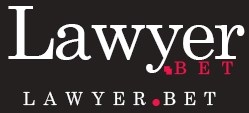Exploring Inheritance: Cash vs. Property
In the realm of inheritance, receiving money or property can bring about a mix of blessings and challenges. While many envision the perks of a substantial inheritance, the reality is that inheriting cash and inheriting property each come with their own set of advantages and drawbacks. This article delves into the pros and cons of inheriting cash versus property, offering insights on maximizing your inheritance.
Distinguishing Cash from Property Inheritance
When an inheritance is left behind, it can manifest in the form of cash, property, or a combination of both. Depending on your financial aspirations and personal inclinations, one may prove more advantageous than the other. Let’s dissect the fundamental disparities between inheriting cash and property:
Receiving Cash:
- Advantages:
- Immediate access to funds for emergencies or investments
- Higher liquidity compared to property
- Easier division among beneficiaries
- Disadvantages:
- Vulnerable to inflation
- Potential for frivolous spending
- Limited scope for appreciation
Receiving Property:
- Advantages:
- Potential for rental income or capital appreciation
- Tangible asset with inherent value
- Offers a sense of security and stability
- Disadvantages:
- Incurs maintenance costs and property taxes
- Illiquid asset that may pose challenges in quick selling
- Potential for disputes among co-owners
Upsides of Inheriting Cash:
- Flexibility to invest in a diverse array of assets
- Capability to settle debts or expenses
- Avoids the complexities of managing physical property
Upsides of Inheriting Property:
- Opportunity to generate passive income through rent
- Potential for long-term wealth accumulation via property appreciation
- Asset diversification and expansion of portfolio
Effective Strategies for Handling Your Inheritance:
- Consult with a financial planner or estate lawyer for professional guidance
- Evaluate your financial objectives and risk tolerance before making investment choices
- Take into account tax implications and estate planning tactics
- Establish a budget and prioritize clearing high-interest debts
Illustrative Scenario:
Sarah inherited $100,000 in cash from her late grandfather, while her sister, Emily, inherited a rental property valued at $500,000. Sarah opted to invest her inheritance in a diversified mix of stocks and bonds, whereas Emily chose to oversee the rental property and earn rental income. Over five years, Sarah’s investment portfolio grew by 8% annually, while Emily’s rental property appreciated by 5% per year. In this scenario, Sarah’s cash inheritance surpassed Emily’s property inheritance in terms of total return.
Personal Testimony:
“I inherited a house from my parents, and although it was a valuable asset, the maintenance costs and property taxes became a significant burden. Eventually, I sold the property and utilized the proceeds to invest in a more diversified portfolio, yielding better returns and liquidity.” – John, 45
Closing Thoughts:
Inheriting cash or property can significantly shape your financial trajectory. It’s crucial to carefully weigh the advantages and disadvantages of each option, making informed decisions tailored to your unique circumstances. Whether you opt to invest your inheritance, settle debts, or acquire property, seek expert advice and strategize wisely to maximize the benefits of your inheritance. Remember, it’s not about whether cash or property reigns supreme, but rather how you can leverage your inheritance to realize your financial aspirations and safeguard your future.
Money vs Property Inheritance: Which Is the Better Legacy to Receive
Introduction
When it comes to inheritance, the debate over whether money or property is the better legacy to receive has been a long-standing one. Both have their advantages and disadvantages, and ultimately, the decision comes down to personal preference and individual circumstances. In this article, we will explore the benefits of inheriting money versus property, and provide some practical tips for managing both types of inheritance.
Benefits of Inheriting Money
There are several benefits to inheriting money as a legacy:
- 1. Liquidity: Money is liquid and can be easily converted into other assets or investments.
- 2. Flexibility: With money, you have the flexibility to use it as you see fit, whether it be for investments, savings, or personal expenses.
- 3. Wealth-building: Inherited money can be a great way to start building wealth for yourself and future generations.
Practical Tips for Managing Inherited Money
Here are some practical tips for managing inherited money:
| Tip | Description |
|---|---|
| 1. Create a budget | Start by creating a budget to help you manage your inherited money effectively. |
| 2. Seek professional advice | Consider consulting with a financial advisor or planner to help you make informed decisions about your inheritance. |
| 3. Diversify your investments | Consider diversifying your investments to reduce risk and maximize returns. |
Benefits of Inheriting Property
On the other hand, inheriting property also comes with its own set of benefits:
- 1. Tangible asset: Property is a tangible asset that can provide long-term stability and potential for appreciation.
- 2. Rental income: If the inherited property is a rental property, it can provide a steady source of income.
- 3. Emotional value: Inherited property may have sentimental value, making it a cherished family heirloom.
Practical Tips for Managing Inherited Property
Here are some practical tips for managing inherited property:
| Tip | Description |
|---|---|
| 1. Get a property appraisal | Start by getting a professional appraisal to determine the value of the inherited property. |
| 2. Consider rental options | If the property is not your primary residence, consider renting it out to generate income. |
| 3. Maintenance and upkeep | Be prepared for ongoing maintenance and upkeep costs associated with owning property. |
Case Studies
Let’s look at some case studies to see how individuals have managed their inheritances:
- 1. John inherited $100,000 from his grandmother. He used the money to start his own business and is now a successful entrepreneur.
- 2. Sarah inherited a family vacation home. She decided to rent it out as a vacation rental, generating passive income for her family.
First-Hand Experience
My own experience with inheritance was receiving a family heirloom ring from my grandmother. While it may not have been a significant financial asset, the sentimental value it holds for me is priceless.
In conclusion, the debate over money vs property inheritance ultimately comes down to personal preference and individual circumstances. Both types of inheritance have their own unique benefits and challenges, and it is important to carefully consider how best to manage your inheritance based on your own financial goals and values.




